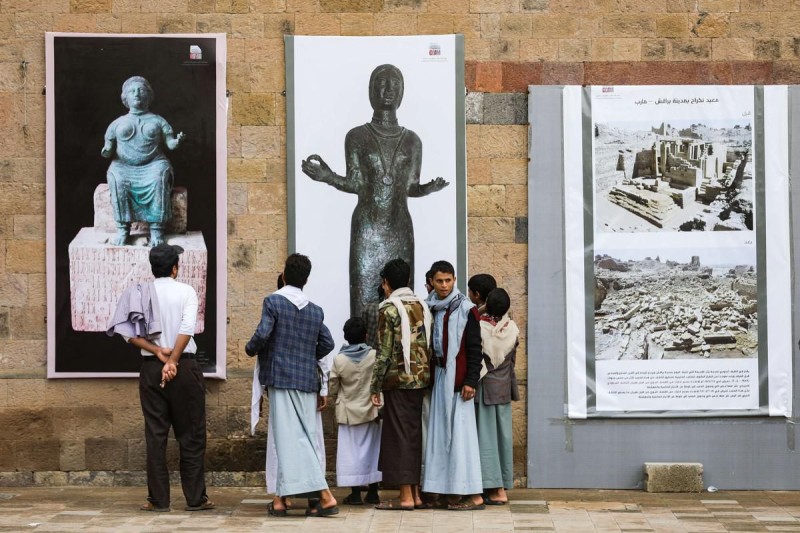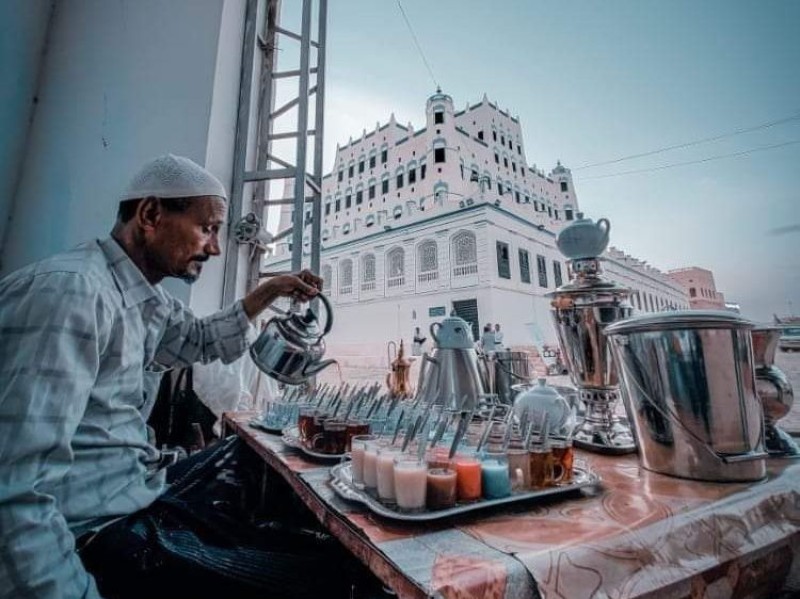Currency rout pushes Yemen to brink of starvation


CAIRO: Anwar Abdullah goes to work every day but he hasn’t been paid in five months. When prices for wheat, sugar and other staple foods spiked earlier this month, the Yemeni school teacher feared for his three children. A civil war that flared into a regional conflict has devastated Yemen’s economy and pushed millions to the brink of starvation.
The local currency’s depreciation and the bombing of ports and roads have disrupted the distribution of food imports on which the poorest Arab country depends.
Two of every three of the nation’s 27 million citizens struggle to get enough food to survive, according to the United Nations. “The situation is deteriorating rapidly because of the conflict,” Reem Nada, a spokeswoman for the U.N.’s World Food Program, said by telephone from Cairo. “The current level of hunger in Yemen is unprecedented.”
Yemen is part of a broader crisis that’s also convulsing Nigeria, Somalia and South Sudan. Humanitarian operations need $4.4 billion in aid by the end of March to avert a “catastrophe” in these countries, U.N. Secretary-General Antonio Guterres said Wednesday.
The U.N. declared a famine in parts of South Sudan on Feb. 20.
Wholesale prices for wheat in the Yemeni city of Taiz surged by more than 40 percent on Feb. 12, when the black market value of the currency, the rial, plunged 30 percent against the U.S. dollar.
The latest price spike suggests that food imports, which provide for 90 percent of the country’s needs, could become even harder for people to afford. “What can we do? We have nothing,” Abdullah, 38, said on Feb. 14 from the capital Sanaa. “With the new price hikes, we will go begging in the streets.”
Yemen was already unstable before the outbreak of civil war in March 2015 plunged it into chaos, allowing Al-Qaeda to thrive. Houthi rebels drove President Abed Rabbou Mansour Hadi’s government from Sanaa to the southern port of Aden. Saudi Arabia and Arab allies began bombing Houthi forces and deployed ground troops to support Hadi. Most foreign powers recognize Hadi, while the Gulf Arabs’ regional rival, Iran, recognizes the Houthis.
The economy shrank by 28 percent in 2015, as Yemen’s already modest output of oil tumbled, and was set to contract further in 2016, according to the latest available data from the World Bank. “We are looking at a serious risk of starvation for a large proportion of the population,” Sherin Varkey, UNICEF’s acting representative for Yemen, said by telephone from Sanaa.
The rial slumped to 390 to the dollar on the black market on Feb. 12, after trading at about 300 for several months, money changers in Sanaa, Aden and the city of Taiz said by phone.
As a result, a 50 kilogram sack of wheat, which many Yemenis buy to make bread, jumped 42 percent that day to 8,500 rials, while the same amount of sugar rose 27 percent, according to Ahmad al-Sharabi, a food wholesaler in Taiz.
“The rial is very much overvalued and the government isn’t in a position to defend it,” Peter Salisbury, a senior research fellow at Chatham House, said from London. “If the rial devalues, it worsens the hunger crisis in the country.”
The rial returned to 300 per dollar on the black market on Feb. 14, as both the Hadi government and the Houthis imposed controls on money changers. It has fluctuated to as much as 330 to the dollar since then, Taha Ahmad, a Taiz-based money changer, said by telephone.
Four of Yemen’s 21 provinces – Abyan, Hadramawt, Taiz and Hudaida – are experiencing a food “emergency,” meaning that more than 15 percent of their populations suffer from “acute malnutrition,” the U.N. said in a Feb. 10 report.
“Hudaida and other ports operated by the Houthis are operating way below capacity and in many cases have been bombed quite severely,” Adam Baron, a Yemen specialist at the European Council on Foreign Relations, said by telephone from Vienna. “Roads have been bombed, crucial bridges have been bombed, fuel costs are astronomical.”
Najeeb Mohammad lives in Taiz, on the front lines of the war. The crisis has cost him his sales job and his apartment, which was damaged in fighting, and the father of five scrapes by as a motorcycle-taxi driver. “Even tea is a luxury,” he said by phone. “This is no longer a life.” Dialy Star

Sana’a – The General Authority for Antiquities and Museums, operating under the control of the Houthi militia in the occupied capital S…

Hadramout — UNESCO has officially inscribed Al-Dan Hadrami, a traditional poetic and musical art form from Yemen’s Hadramawt region, on…

NewYourk  -- The renowned auction house Sotheby’s has revealed plans to present one of the rarest surviving Yemenite Torah scrolls in it…